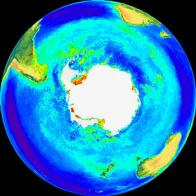 The earth’s ability to soak up carbon dioxide is beginning to fail because of rising temperatures, in a long-feared sign of “positive feedback,” new research reveals today.
The earth’s ability to soak up carbon dioxide is beginning to fail because of rising temperatures, in a long-feared sign of “positive feedback,” new research reveals today.
The study has found that climate change is weakening one of the principal “sinks” absorbing carbon dioxide – the Southern Ocean around Antarctica, which up until now has been the Earth’s largest carbon sink. But now it is effectively saturated.
As a result, atmospheric CO2 levels may rise faster and bring about rising temperatures more quickly than previously anticipated. Stabilising the CO2 level, which must be done to bring the warming under control, is likely to become much more difficult, even if the world community agrees to do it.
The news may give added urgency to the meeting in three weeks’ time between the G8 group of rich nations and the leading developing countries led by China, at Heiligendamm in Germany, when an attempt will be made to put together the framework of a new world climate treaty to succeed the current Kyoto protocol.
“This is the first unequivocal detection of a carbon sink weakening because of recent climate change,” said the lead author of the study, Corinne Le Quéré, of the University of East Anglia. “This is serious. Whenever the world has greatly warmed in the past, the weakening of CO2 sinks has contributed to it.”
